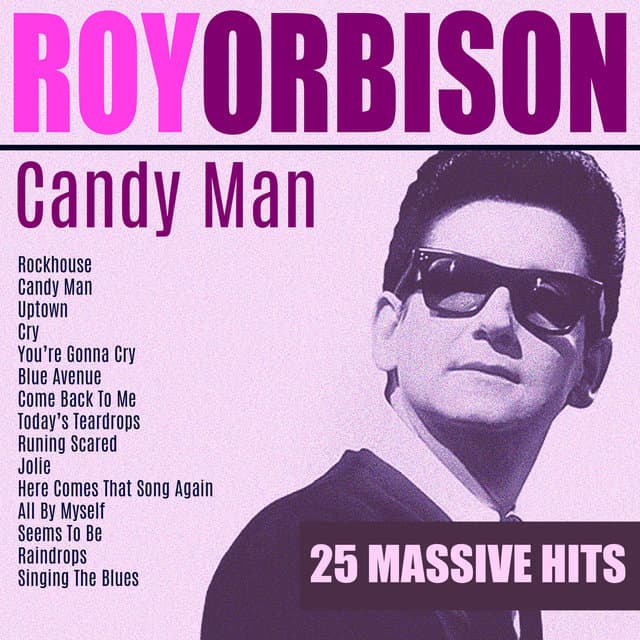
An Ode to Lost Love and the Illusion of Sweet Comfort
🍭 The Lingering Echoes of a “Candy Man”‘s Promise 💔
For those of us who came of age during the tumultuous and transformative decades of the mid-20th century, the voice of Roy Orbison remains an indelible part of the soundtrack of our lives. It was a voice capable of plumbing the depths of heartbreak and soaring to heights of pure, operatic despair, a unique instrument that transcended the simple categorization of rock and roll or country music. And yet, among his pantheon of tortured ballads and tragicomic anthems, there resides a track that often sits in the shadows of giants like “Oh, Pretty Woman” and “Crying”. That track is “Candy Man,” a song that, while seemingly buoyant in its execution, carries the unmistakable, bittersweet ache that defines much of Orbison’s best work.
Released in 1961 on the monumentally successful Monument Records label, “Candy Man” didn’t replicate the dizzying, chart-topping peaks of his most iconic singles, but it was, nonetheless, a significant presence on the airwaves. It climbed steadily up the Billboard Hot 100, peaking at a respectable Number 25 during a fiercely competitive era in American popular music. This was a time when the radio dial was a battleground for genres—from the lingering echoes of doo-wop to the nascent sounds of the British Invasion—and for a song to crack the Top 30 demonstrated considerable staying power and audience appeal. Its success further cemented Orbison’s position as a bona fide star, demonstrating that his appeal wasn’t limited to the melodramatic slow dances he was becoming known for; he could deliver a rollicking, almost jaunty tune while still retaining his signature emotional depth.
The story behind “Candy Man” is intertwined with the foundational elements of Roy Orbison’s early career, specifically his partnership with Fred Foster, the head of Monument Records, and the legendary production team that crafted his unique sound. The song was a relatively unusual choice for Orbison, being a cover of a tune originally written and performed by Beverly Ross (who also co-wrote “Lollipop”) and Bob Newman. What Orbison and his arranger, Bill Justis, did was take a relatively straightforward, blues-inflected number and imbue it with that characteristic “Orbison sound”: a sophisticated blend of strings, driving rhythm, and that ever-present sense of longing. This was the era of the famed Nashville A-Team, and their polished, yet powerful, instrumentation provides the bedrock for Orbison’s vocal performance, which here is notably more upbeat than his usual fare, though still laced with a certain vulnerability.
At its core, “Candy Man” is a deceptively simple narrative about a man who believes he possesses the sweet, irresistible charm to win over a woman. He casts himself as the eponymous “Candy Man”—a figure of sugary temptation, offering “candy kisses” and a life of sweet delight. However, beneath this playful bravado lies a more poignant meaning, one that speaks directly to the experience of a nostalgic heart. The song is a thinly veiled metaphor for the intoxicating, but ultimately temporary, nature of romantic pursuit and infatuation. The ‘candy’ he offers is not a lasting treasure but a fleeting pleasure, suggesting an awareness, perhaps subconscious, that the sweetness he provides might not be enough to sustain a true, deep relationship. For the older listener, it evokes memories of youthful flirtations, the confident strut, and the slightly naive promises we all made in the heady rush of a new romance. It reminds us of a time when love felt as simple and uncomplicated as a piece of brightly wrapped confectionery, before life’s complexities added their own bitter flavors. The minor-key sensibility that perpetually lurked even in Orbison’s major-key moments ensures that the listener feels the shadow of potential disappointment even amidst the upbeat tempo. It’s a bittersweet snapshot from a bygone era, proving that even a song called “Candy Man” could carry the heavy, beautiful weight of a Roy Orbison classic.